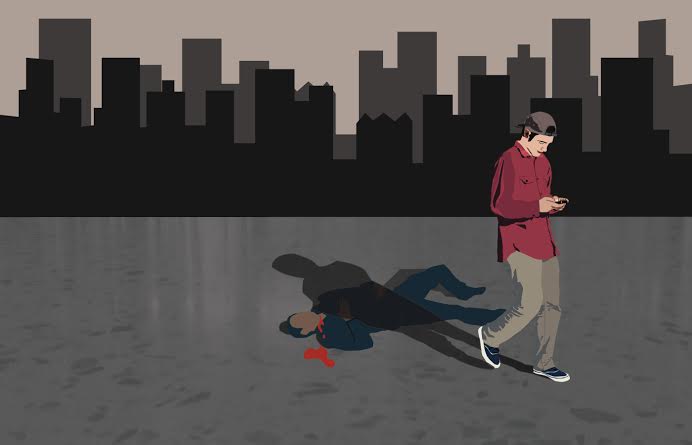
Show reveals society’s dependence on technology
There is no denying that television is in its golden age. Shows like “Breaking Bad,” “Game of Thrones” and “Mad Men” have captivated audiences everywhere with their intricate storylines and complex characters. The popularity of instant access streaming sites such as Netflix and Amazon Prime also means that all this quality television is just a click away; the only problem is figuring out what show to start. Every other week, Arts writer Krishan Mithal will sort through the wealth of television that exists and profile one new show that he feels is worth watching. This week’s show: “Black Mirror.”
If you are a subscriber to Netflix and a television buff like me, then you have probably heard of the immensely popular shows like “Orange is the New Black” and “House of Cards.” However, embedded within the more glamorous programs lies a British mini-series called “Black Mirror.” “Black Mirror” reveals society’s hopeless dependence on technology with a dark, satirical and sometimes grotesque tone.
From the very first episode, “The National Anthem,” the audience witnesses the embarrassing consequences of society’s reliance on technology. The Prime Minister (PM) of the United Kingdom is forced to have intercourse with a pig on live television in order to save the life of the princess of the royal family, who has been kidnapped and held captive. Thanks to social media outlets like YouTube and Twitter, this ordeal is anything but a secret. The most gut-wrenching part of the episode is when the princess is released and finds that everyone is less interested in her safety and more preoccupied with watching the PM have intercourse with a pig. The last scenes of the episode are tragic because they show how people are too interested in watching their screens to pay the slightest bit of attention to the real world.
This sort of obsession with technology and lack of interest in social connection is all too common in real life. Regularly, people have almost bumped into me on the sidewalk because they were too busy fiddling with their phone to look up and acknowledge my existence. Nowadays, we are inundated with so much data, so many applications and upgrades that our disconnection from reality should be no surprise.
The episode “Be Right Back” touches on a more emotional note by showing how futuristic technological advances can hinder the ability to move on after a devastating event.
In this episode, a widow falls into a deep depression after the death of her fiancé and is unable to recover until she receives a clone of her lost lover. This episode touches on one of the most difficult things a human must do: carry on. At first, she thinks the replica of her fiancé is perfect, but she gradually realizes that she is not emotionally satisfied by the clone.
Even though the clone is a perfect copy of the man she had lost, this episode shows audiences that there really is no substitution for human life. With this episode, “Black Mirror” comments on the way personal connection has become devalued. The show argues that society is becoming far too materialistic.
We see this theme again in “15 Million Merits,” where we are presented with a dystopian society where people’s lives are governed by technology and superficiality.
It is apparent from this episode how society only acknowledges those who are beautiful while people who do not meet standards of beauty are relegated to the fringes of society. In this installment of “Black Mirror,” there is an “American Idol”-type show where contestants are ostensibly judged on the quality of their singing, but are instead judged purely on their physical appearance. This may sound like an awful world, but it isn’t too far from our reality. Take Instagram, for example. The pictures of conventionally attractive people garner far more likes than the pictures of a below-average-looking person. Again, this episode highlights how society is placing more emphasis on superficial and materialistic values. “Black Mirror” shows us that technology, while useful, can also be detrimental to society. I rate this show four out of five stars because it effectively conveys the flaws in today’s society, while remaining engaging and entertaining to watch.
If you are interested in watching “Black Mirror,” both seasons are on Netflix. Netflix has also ordered a twelve-episode season to be aired in 2016.





